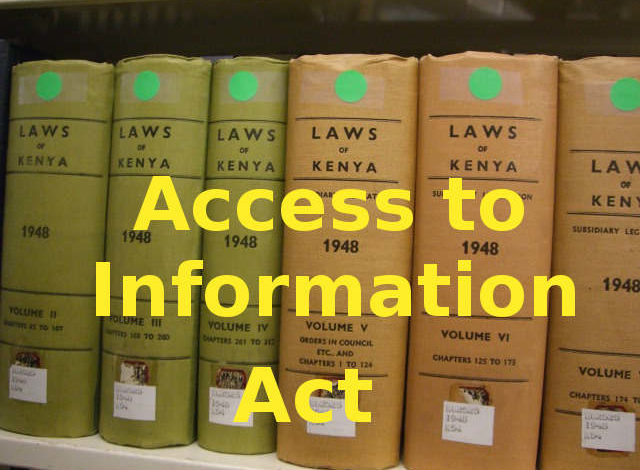The Access to Information Act , 2016 Simplified For You

Did you know that public entities are required to disclose information without the need for the applicant to give reasons for inquiring the requested information? Yes, that is what the Right to Information Act ,2016 states. It further states that private entities are only required to do so if the information is needed to protect a right.
Access to information is very important to any journalistic work. It is however common for journalists not to access the information that they need. Some of the reasons because are some journalists are not conversant with Article 35 of the constitution. Others do not know how to go about getting the information officially.
The Access to Information Act , 2016 also stipulates that one is not expected to pay any fee unless the required information requires making copies. In this case the applicant will only pay a fee which must not be more than the cost of making the copies or supplying the information.
The Access to Information Act also explains what one can do in case his/her request to access information is denied or the way they offer to provide it is unsatisfactory. For example, if one receives notification that his/her application has been rejected, it should be followed by an explanation as to why it was rejected and give the procedure for objecting the decision. This might require one to appeal to the Commission on Administrative Justice (CAJ), also called the Ombudsman, within 30 days from the day you receive the decision. If you are unhappy with the CAJ’s decision then you can appeal to the High Court within 21 days from the day of CAJ decision.
RoGGKenya has simplified your work by sharing the Act HERE We also recommend that you read the handbook ‘Handbook on the Access to Information Act , 2016 ‘ that was developed by the Katiba Institute . This handbook takes you step by step on how to ensure that your rights are not violated and what to do in case they are.
It answers many questions including:
- Who has the right to access information
- Why do we have this right
- Who must disclose information when asked?
- How to get the information
- What should I do supposedly I urgently need the information and cannot wait for the 21 days?
- What happens if a body has destroyed the required information?
It also states the amount of fine and duration of prison term if one is found guilty of various offences. For example, if one is convicted for providing false information then they may be sentenced to a fine of Ksh 500,000 or a term in prison of not more than three years or both. Read the PDF handbook HERE.